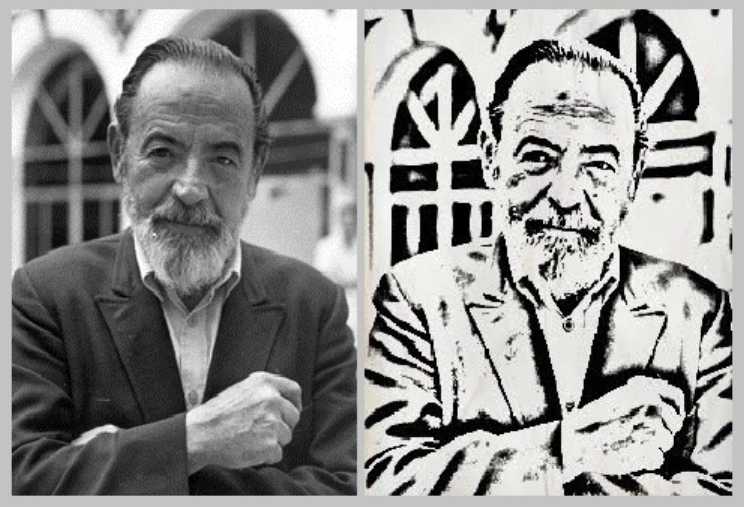4.1.2.7.7 “Through my mirror”, notebook published by Eliseo Diego (1920 – 1994) in 1981

“Through my mirror” is a work conceived by Eliseo Diego under the influence of the metaphysical obsessions of yesteryear, now strengthened by the progress along the inelastic rope of life and a lucidity that has been refined through the contemplation of great truths. Here, the poet becomes a consummate spectator of the dissolving capacity of time and builds his helplessness into verses of a lyricism that can be described as forceful, closed in its own dilemmatic substance.
Everything that is life in the notebook springs fundamentally from memory, through an attempt to penetrate to the core of reality – one might say to the bone of time – searching for what was on its waters, what the successive mirror can no longer show him and the ephemeral now exerts an influence that saturates the imagery that underlies the text, where melancholy is perhaps the most defined feeling.
As for the poetic structures, the colloquial tone has been somewhat abandoned in these to offer a lyricism given by rhyme and, in a general sense, musical iteration, also pertinent to the aforementioned nature of the collection of poems and, in a general sense, the irresolvability of its questions, which at times become a deaf bastion of nostalgia.
The symbol of the mirror has already been explored in other collections of poems; the simple title of “The Mirror” is worth mentioning, which reveals the role it plays in the perennial dialogue with reality and the changing nature of forms over time, seen on a smaller scale. Although this poem is not included in the collection, it shares its essential atmosphere:
“The clean oval mirror contemplates a single movement that the poplar branch makes when it sometimes hits the glass.
Everything else: the red of the curtains, the table and the man, makes the mirror possible in the contemplation of the very light shadow.
Sometimes this is interrupted, and a little dread blows through the room, when the mirror looks out.”
However, the book’s main characteristic, already in its infancy in other collections of poems but now the source of a central interrogation, is the self and the attempt at self-definition precisely in the face of the flow of time. Of this nature are the pieces titled “Frente al espejo” (In Front of the Mirror), “Biografía” (Biography), “Quién viene” (Who Comes?), and others in which the mirror takes on the primary connotation of reflecting one’s own image, but in a spiritual sense, and the search for the self can be called immanentist, removed from spatial and temporal contingencies, which is impossible.








